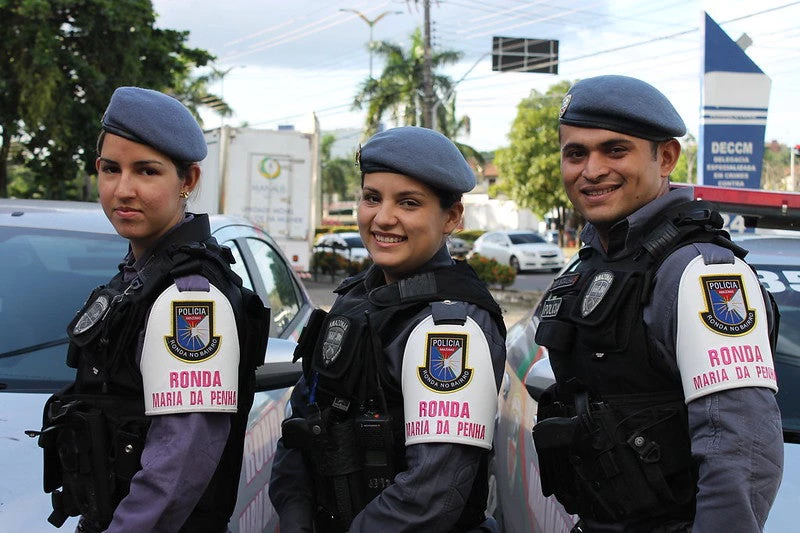On November 25, 1960 three sisters were murdered in the Dominican Republic for their political activism against the dictatorship of Rafael Trujillo. The battered bodies of Patria, Minerva and Maria Teresa Mirabal were found at the side of the road they took to get home from visiting the husbands of Maria Teresa and Minerva in jail.
The executions shocked the world and gave rise to the United Nation’s International Day for the Elimination of Violence against Women. It is a day to celebrate the significant gains in women’s rights since that time, but also to remind us that every day women around the world are still subject to rape, domestic violence and other forms of violence.
Sadly, this remains a stubborn problem across Latin America and the Caribbean. In the twelve countries for which we have available data, the percentage of women who reported that their partners physically abused them at some point in their lives ranges from 19% to more than 50%. Moreover, between 11% and 25% of women ages 15 to 49 across the region reported that their partners had physically abused them in the past year.
The consequences of violence against women are far reaching including physical and psychological wounds or even death and broad social and economic costs. It is often a barrier preventing women and girls from fully participating in the social and economic life of their countries. It shatters the hopes and dreams of victims, and our societies and economies are poorer because of their lost contributions. In some countries the economic cost is estimated at up to 3.7% of their GDP. This is more than double what most governments spend on education.
For the World Bank, eliminating gender-based violence is a priority. We are doing a lot, but we need to do more – much more. The effort to eliminate gender violence must be at the heart of all we do. It is tightly bound to the objective of creating human capital and guaranteeing the full participation of women in our societies and the economies.
Innovation is also key. For example, in Mexico we support a program that aims to analyze the potential of sex education as a tool to prevent and respond to gender violence among young people. And in Peru, we launched an experimental impact assessment of home visits project to evaluate police responses and intervention in cases of domestic violence.
In Peru, we are also working on mapping the interventions of the central and local governments and improving free legal services for victims of gender-based violence, to reduce barriers and make them more accessible to all. In Honduras and Brazil we support efforts for prevention and responsiveness at the municipal level and to improve services for survivors of violence.
In Mexico and Ecuador, we are supporting innovative programs that include campaigns to oppose sexual harassment of women in public transport and provide passengers with strategies to intervene without putting themselves at risk.
We must continue learning from our experiences and perfecting the way we evaluate our results. The evidence shows that interventions must be multisectoral, combine different strategies and target both men and women, always under the guiding principle of promoting gender equality. Working with men as allies has produced positive results, as seen with programs like Promundo’s Program H, first developed in Brazil. The outcomes show a change in attitudes towards violence and gender roles and better relationships.
As we move forward, we will need more and better evaluations. The recently established World Bank regional Gender Innovation Lab in the Latin America and Caribbean area will help provide better evidence on what works and how we can effectively influence social behaviors that, sadly, too often legitimize violence against women.
We can proudly say that we do a lot, but a lot may not be enough. Each achievement must inspire new actions and initiatives. Every woman deserves a world where the fear of gender-based violence is a thing of the past. Starting on November 25, the United Nations is calling for 16 days of Activism against Gender-Based Violence. However, this is an issue that needs to be at the forefront of our efforts 365 days a year.





Join the Conversation